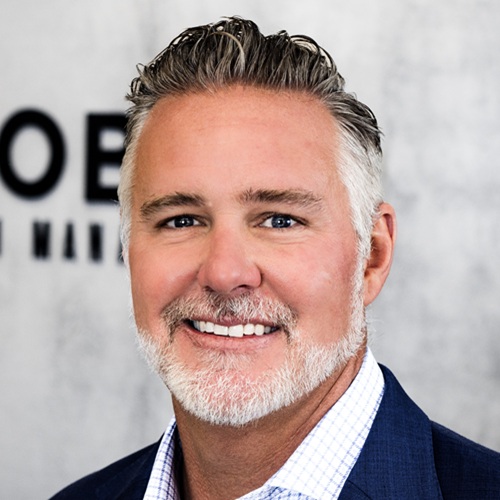An Easier Path to Real Estate Investing: 1031 Delaware Statutory Trusts
Being a landlord isn't for everyone, but getting out of the biz could trigger capital gains taxes. There's another way to stay in real estate, without the tenant hassles and without the bite of capital gains.


Profit and prosper with the best of Kiplinger's advice on investing, taxes, retirement, personal finance and much more. Delivered daily. Enter your email in the box and click Sign Me Up.
You are now subscribed
Your newsletter sign-up was successful
Want to add more newsletters?

Delivered daily
Kiplinger Today
Profit and prosper with the best of Kiplinger's advice on investing, taxes, retirement, personal finance and much more delivered daily. Smart money moves start here.

Sent five days a week
Kiplinger A Step Ahead
Get practical help to make better financial decisions in your everyday life, from spending to savings on top deals.

Delivered daily
Kiplinger Closing Bell
Get today's biggest financial and investing headlines delivered to your inbox every day the U.S. stock market is open.

Sent twice a week
Kiplinger Adviser Intel
Financial pros across the country share best practices and fresh tactics to preserve and grow your wealth.

Delivered weekly
Kiplinger Tax Tips
Trim your federal and state tax bills with practical tax-planning and tax-cutting strategies.

Sent twice a week
Kiplinger Retirement Tips
Your twice-a-week guide to planning and enjoying a financially secure and richly rewarding retirement

Sent bimonthly.
Kiplinger Adviser Angle
Insights for advisers, wealth managers and other financial professionals.

Sent twice a week
Kiplinger Investing Weekly
Your twice-a-week roundup of promising stocks, funds, companies and industries you should consider, ones you should avoid, and why.

Sent weekly for six weeks
Kiplinger Invest for Retirement
Your step-by-step six-part series on how to invest for retirement, from devising a successful strategy to exactly which investments to choose.
I’ve written before about helping clients who feel trapped in real estate investments because of the high capital gains tax they would owe if they sold their properties.
In my column about Deferred Sales Trusts, I outlined how to use Section 453 of the Internal Revenue Code to defer the tax and roll the money into investments other than just real estate.
Another strategy that I’ve been getting a lot of questions about lately uses a 1031 Exchange to put the proceeds of a sale into a Delaware Statutory Trust (DST). It’s a way to stay in real estate — and avoid capital gains taxes — but as a more passive owner.
From just $107.88 $24.99 for Kiplinger Personal Finance
Become a smarter, better informed investor. Subscribe from just $107.88 $24.99, plus get up to 4 Special Issues

Sign up for Kiplinger’s Free Newsletters
Profit and prosper with the best of expert advice on investing, taxes, retirement, personal finance and more - straight to your e-mail.
Profit and prosper with the best of expert advice - straight to your e-mail.
Many real estate investors know at least a little bit about the 1031 Exchange. The concept has been around since the 1920s; it became Section 1031 of the Internal Revenue Code in 1954, and it’s been updated through the years.
Basically, it allows an owner or investor to sell a property and defer the capital gains tax on the sale.
There are some guidelines that you have to follow. You must set up your 1031 prior to closing on the sale, and your sales proceeds go to a third party, called an accommodator or a qualified intermediary, to hold. From closing, you have 45 days to identify the property you’re going to exchange into. And then you have six months to close on the property you identified. If you do all that, you’ve accomplished a successful 1031 Exchange. But until 2004, you were still replacing one property with another — so, like it or not, you were still a working landlord.
More recently, Revenue Ruling 2004-86 determined that a Delaware Statutory Trust qualified as real estate and, as such, could serve as a replacement property solution for 1031 Exchange transactions. If you were tired of managing a property yourself, you could, instead, acquire a fractional or percentage interest in a DST, and become a part owner in a much larger real estate investment — a 300-unit apartment building, a grocery center, medical office building, etc.
So now instead of Mr. and Mrs. Smith as your tenants, calling you to come fix the garbage disposal, Walgreens or CVS is your tenant with a corporate lease. It’s a more hands-off way of owning income-producing real estate that’s especially well-suited to retirees. A dozen or so fairly large companies put together deals for investors to exchange into that are professionally managed and pretty much turnkey.
There is a downside (of course), and that’s liquidity. You still own real estate — it’s not like stock, where you can hit a button and sell. The holding period might be five to 10 years.
You also should be sure you’re dealing with a reputable company, called a sponsor, when you structure the deal. I prefer ones that have been in business over 10 years — which proves that they sustained the market downturn and can demonstrate a proven track record of acquiring, managing and disposing of assets on behalf of investors — and ones that manage a sizable portfolio of real estate throughout the U.S. The good news is there’s a handful of them that have been doing this for many years. If you have a trusted financial adviser, he can help you determine who to work with.
Investment strategies can run hot and cold — and DSTs cooled off for a while, thanks to the most recent recession and real estate bust. But they offer a viable solution to a common investor problem. Talk to your tax attorney and your financial adviser to see if this strategy makes sense for you.
Kim Franke-Folstad contributed to this article.
Securities offered through Madison Avenue Securities, LLC (MAS), member FINRA/SIPC. Advisory services offered through Global Wealth Management Investment Advisory (GWM) and/or Global Financial Private Capital (GFPC). MAS, GWM, and GFPC are not affiliated entities. MAS and Global 1031 Exchange are not affiliated companies. Investing involves risk, including the potential loss of principal.
Neither the firm nor its agents or representatives may give tax or legal advice. Individuals should consult with a qualified professional for guidance before making any purchasing decisions.
The appearances in Kiplinger were obtained through a PR program. The columnist received assistance from a public relations firm in preparing this piece for submission to Kiplinger.com. Kiplinger was not compensated in any way.
Profit and prosper with the best of Kiplinger's advice on investing, taxes, retirement, personal finance and much more. Delivered daily. Enter your email in the box and click Sign Me Up.

Grant Conness is Managing Director and Co-Founder of Global Wealth Management, recognized as the No. 1 financial advisory firm in Southeast Florida by USA TODAY's 2025 Best Financial Advisory Firms list.* With more than 20 years of experience, Grant focuses on helping clients navigate the critical five years before and after retirement through the firm's proprietary Retirement Roadmap Review process. Grant is co-host of Retire Now South Florida on NBC, CBS, ABC and FOX, and he has been quoted in The Wall Street Journal.** He is also co-author of Charting Your Financial Course.
-
 Nasdaq Leads a Rocky Risk-On Rally: Stock Market Today
Nasdaq Leads a Rocky Risk-On Rally: Stock Market TodayAnother worrying bout of late-session weakness couldn't take down the main equity indexes on Wednesday.
-
 Quiz: Do You Know How to Avoid the "Medigap Trap?"
Quiz: Do You Know How to Avoid the "Medigap Trap?"Quiz Test your basic knowledge of the "Medigap Trap" in our quick quiz.
-
 5 Top Tax-Efficient Mutual Funds for Smarter Investing
5 Top Tax-Efficient Mutual Funds for Smarter InvestingMutual funds are many things, but "tax-friendly" usually isn't one of them. These are the exceptions.
-
 Social Security Break-Even Math Is Helpful, But Don't Let It Dictate When You'll File
Social Security Break-Even Math Is Helpful, But Don't Let It Dictate When You'll FileYour Social Security break-even age tells you how long you'd need to live for delaying to pay off, but shouldn't be the sole basis for deciding when to claim.
-
 I'm an Opportunity Zone Pro: This Is How to Deliver Roth-Like Tax-Free Growth (Without Contribution Limits)
I'm an Opportunity Zone Pro: This Is How to Deliver Roth-Like Tax-Free Growth (Without Contribution Limits)Investors who combine Roth IRAs, the gold standard of tax-free savings, with qualified opportunity funds could enjoy decades of tax-free growth.
-
 One of the Most Powerful Wealth-Building Moves a Woman Can Make: A Midcareer Pivot
One of the Most Powerful Wealth-Building Moves a Woman Can Make: A Midcareer PivotIf it feels like you can't sustain what you're doing for the next 20 years, it's time for an honest look at what's draining you and what energizes you.
-
 I'm a Wealth Adviser Obsessed With Mahjong: Here Are 8 Ways It Can Teach Us How to Manage Our Money
I'm a Wealth Adviser Obsessed With Mahjong: Here Are 8 Ways It Can Teach Us How to Manage Our MoneyThis increasingly popular Chinese game can teach us not only how to help manage our money but also how important it is to connect with other people.
-
 Looking for a Financial Book That Won't Put Your Young Adult to Sleep? This One Makes 'Cents'
Looking for a Financial Book That Won't Put Your Young Adult to Sleep? This One Makes 'Cents'"Wealth Your Way" by Cosmo DeStefano offers a highly accessible guide for young adults and their parents on building wealth through simple, consistent habits.
-
 Global Uncertainty Has Investors Running Scared: This Is How Advisers Can Reassure Them
Global Uncertainty Has Investors Running Scared: This Is How Advisers Can Reassure ThemHow can advisers reassure clients nervous about their plans in an increasingly complex and rapidly changing world? This conversational framework provides the key.
-
 I'm a Real Estate Investing Pro: This Is How to Use 1031 Exchanges to Scale Up Your Real Estate Empire
I'm a Real Estate Investing Pro: This Is How to Use 1031 Exchanges to Scale Up Your Real Estate EmpireSmall rental properties can be excellent investments, but you can use 1031 exchanges to transition to commercial real estate for bigger wealth-building.
-
 Should You Jump on the Roth Conversion Bandwagon? A Financial Adviser Weighs In
Should You Jump on the Roth Conversion Bandwagon? A Financial Adviser Weighs InRoth conversions are all the rage, but what works well for one household can cause financial strain for another. This is what you should consider before moving ahead.